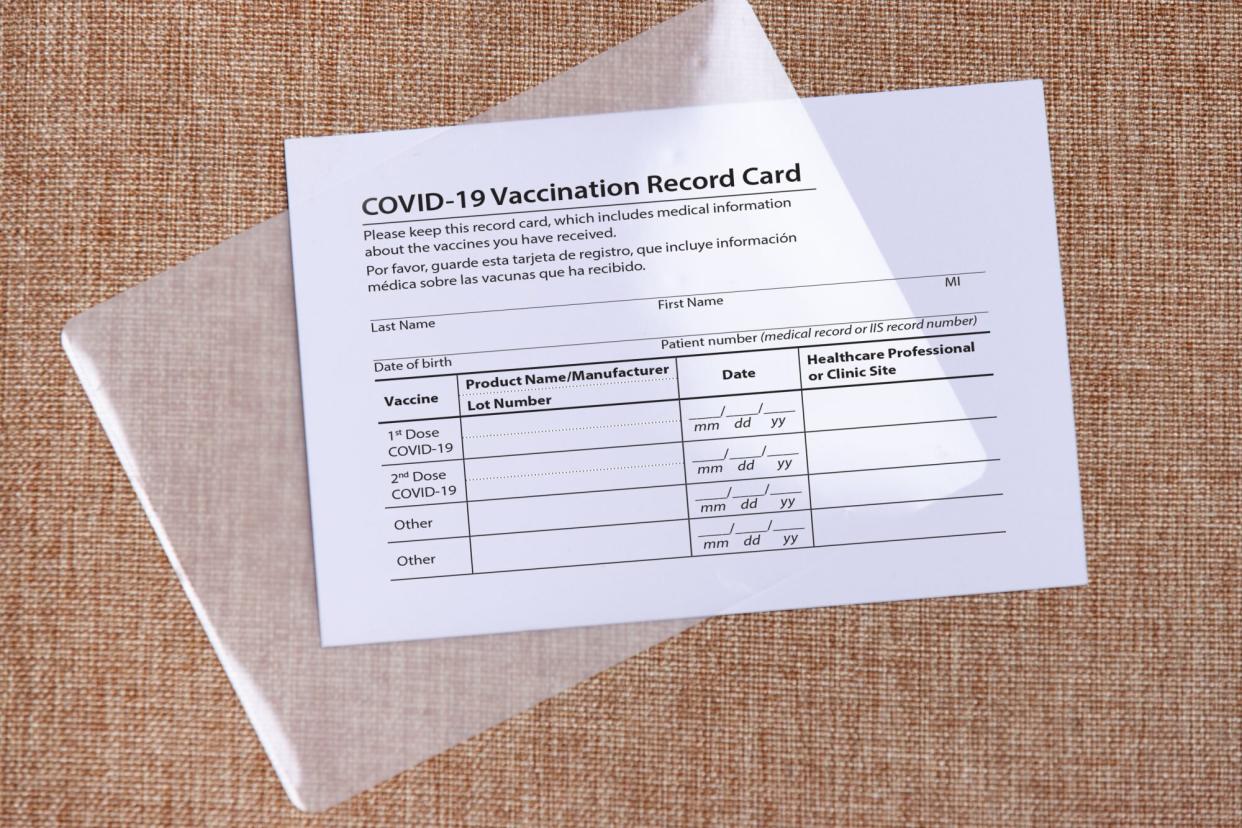Should You Laminate Your COVID-19 Vaccine Card?

Getty / Viorel Poparcea
If you have already secured one or both of your COVID-19 vaccinations, you're probably feeling extra grateful for science. You're likely also feeling as if you are seeing the light at the end of the tunnel after a year filled with fear and countless unknowns. Needless to say, your vaccine card—which documents your coronavirus inoculation—is incredibly important, since it marks this moment, proves your vaccinated status, and may be your ticket to traveling internationally or attending large-scale events, like sports games and concerts, down the line. As such, you might be wondering if you should preserve your card to keep it in mint conditio, and many people are even asking whether or not it's a good idea to laminate the card.
While Niket Sonpal, M.D., a New York City internist on faculty at the Touro College of Medicine, agrees that keeping the card safe is important, he feels that laminating it is not necessary at this point in time. "The card itself contains valuable information on your two doses, including date, timing, and vaccine name and information; however, the United States has not yet instituted vaccine passports for travel or attendance to gatherings," he tells us. "Additionally, we do not know which way the research will go. Will there be a need for booster shots? They would be placed on that original card." In short, Dr. Sonpal feels that, given data and the current state of the pandemic, permanently sealing your card is premature.
Related: Everything You Need to Know About Your COVID-19 Vaccine Card
Sharon Nachman, chief of the division of Pediatric Infectious Diseases at Stony Brook Children's Hospital in Long Island, New York, agrees, suggesting instead that people put their vaccine cards in plastic folders—or a sealable vinyl pouch, like one from Mljsh ($7.29 for two, amazon.com)—and store them in a safe place at home. "I suspect that we may need to get booster shots in the future and will need to record them on the same document," she affirms. "Over time, we will want to look at any differences between the vaccines, including the timing of when the original was given and when a booster should be given." Having a card that is easily accessible and amendable will ensure that all information is stored in one place, she explains.
In the meantime, Dr. Nachman advises taking a picture of your vaccine card and saving it on your phone, so you have two copies of you what were given and when it was administered. "I like the redundancy and having these copies available to you at any time as a precaution to needing that information at the drop of a hat," she adds. In addition to storing your card in a plastic folder and keeping a digital iteration on your phone, Robert Hess III, a public health expert and the CEO of Hess III Communications, a company that advises health and human service providers, also recommends sending a copy of your card to your primary care physician, so that it is stored in your medical record. "This will also make sure it is fully protected and always accessible," he says. "Additionally, individuals can make a photocopy of their vaccine card—and laminate that one if they so choose."

